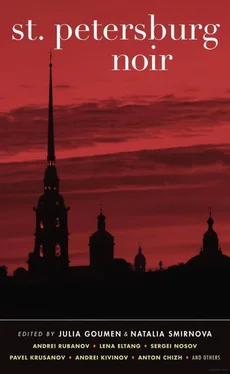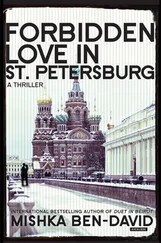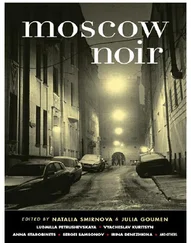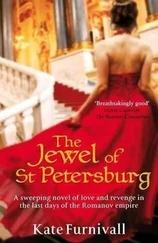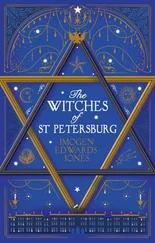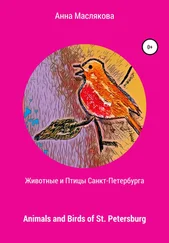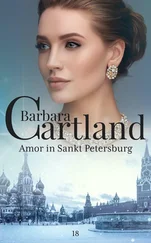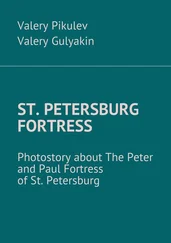After that Ilka began to grow, and everyone knows what people say is the cause.
HOTEL ANGLETERRE
by Vladimir Berezin
Hotel Angleterre
Translated by Amy Pieterse
H e was staring at the ceiling, his feet up on the desk. It was an absurd habit he’d picked up from the Americans, but had now come to love. The plaster molding overhead had started to crack in the seventh year of the revolution, forming an intricate pattern that seemed to augur something. Whether it augured well or ill was unclear. The longer he stared at it, the more it resembled a man with a sack and bludgeon, or a rider with a sword.
He lived in the middle of an enormous city, in a hotel whose windows were beleaguered with monuments. Nearby was a church that had taken many years to build. Now that it was finished, time sought to undo its fate, and everyone said it would soon be closed down.
In light of all that had already happened in this city, it seemed a new life was in store for the church. And he had heard about life here during the siege and the civil war.
Shpolyansky was the one who had told him. A well-known graphic artist had drawn Shpolyansky right here. In the portrait, one of Shpolyansky’s buttons is loose, hanging by a thread. He had grown bald, and quite suddenly. He talked about the city abandoned by the government in 1918. Demoted as the capital, the city continued to live according to its old habits for a time. Then its most illustrious inhabitants started leaving. It was that old law of nature: when the lid is removed from a pot, the fastest molecules of water begin to escape, and the pot cools down. During the recent war, the city cooled down quickly.
And so he lived in a hotel, built by an unknown architect. The building had undergone reconstruction several times, but one thing didn’t change: the architect was still unknown.
Obscurity seemed to consolidate the mystical power of the place, so nobody was surprised when a famous industrialist—a foreigner, one of the wealthiest people in the empire—died in one of the rooms.
Now the empire was gone, and the golden epaulettes of the capital had been torn from the city. It stood before enemy fire like a demoted officer on the breastwork.
The city was still enormous, but it had been dying for several years.
A crazy old woman had wandered the streets, announcing to all and sundry that there would be three floods, the first one in 1824. One hundred years later, a second flood would occur; and a hundred years after that, a third would submerge the domes of the doomed city once and for all. Then the floodwaters would subside, taking everything with them: the cupolas, the crucifixes, and the buildings themselves. Where the city once stood, there would be flat marshland, overgrown with osier for the rest of time.
And the old woman went up to one of the statues, the one prancing on the square, its back turned to the river. Twirling about in her foul-smelling skirts, she ate something from the palm of her hand. The hotel’s inhabitants watched her in fear, as belief in the prophesy grew within them like grass through pavement.
Grass had indeed sprung up in many streets after the revolution, especially those paved with hexagonal wooden tiles. The grass grew tall, and goats grazed here and there, as they did in the Roman ruins. The goats were especially numerous in the outlying districts.
Shpolyansky told him about those times, and his stories were permeated by a foreboding of flight. Later, Shpolyansky did in fact flee. He escaped across the ice on the Gulf of Finland to a different part of the empire, which had gained independence. Many fled that way, and the first to do so was the father of the revolution himself. Now he was the one they were fleeing. The city was empty, and the grass grew taller.
Shpolyansky spoke feverishly, saying that in the demoted city people’s wounds did not heal and women had stopped menstruating.
All around the hotel, new times were afoot and streets were being renamed. No one knew for certain what the street beneath his feet was called.
Shpolyansky’s friend Dragmanov liked to quote two poems about the large church that was visible from the windows of the hotel.
“This temple serves two kingdoms: above, of brick; below, of marble.” But they rebuilt the church almost immediately, he said, so the words had been changed: “This temple serves three kingdoms: marble, brick, and devastation.”
Dragmanov included these poems in his novel, and the novel seemed very promising. The church had long been a place of central importance to the city. The square derived its name from it, the massive black church looming through the cold mist. But the man with his feet on the desk in the hotel room couldn’t think about the novel.
He felt changes in the air acutely. And change was definitely on its way. The city that floated past the Angleterre like flood-waters was pliant and soft—always the case before a change of fate. The city was fluid like the dark waters of the river, or the shadowy water of the gulf pulsing beneath the ice.
It will flow for another hundred years, until the prophesy is fulfilled and the bronze horseman rides on the water as though on solid ground, until the waves swallow the Finnish rock beneath him.
And the hotel—a beehive for the masters of these new times—was ideally suited as that point of fracture.
He had just tried out some new sleight of hand, as was his habit. His friends always found his tricks amusing. Once he concentrated on a mug for so long that he actually made it disappear. “Where’s the cup? Where did it go?” his mother had said, perplexed, as she stood in the middle of the room, waving her arms in dismay. Even then, he didn’t share his secret with her. And to think she’s still alive, my old lady; and I too am alive. There is probably a wisp of smoke coming out of the roof of her little hut right now.
In any case, he had performed for her so often that the trick with the mug would have seemed like a childish prank.
Spoons, as it happened, succumbed to mystical practices far better. The world of Russian objects seemed to yield to his manipulations easily, while objects from abroad were less obedient. The same was true of Russian words: the letters seemed to line up neatly one after another, like rye in a field. The Latin alphabet was more stubborn.
A long time ago he had known Latin, but time seemed to have purged him of all languages except for Russian.
Many knew him as Seriozha, but when you’re pushing thirty a nickname is embarrassing. Yet he knew he would never grow up. He simply didn’t know how to get older.
In his hand Seriozha gripped a glass. A bottle of Rykovka vodka that had just skyrocketed in price stood on the desk, its contents lukewarm.
At last, the heavy fretted door creaked. The man in black leather, who had Seriozha’s own face, had come. For a moment, Seriozha was astounded at the plan—indeed, the mirror reflected twins: one in a suit with his feet up, the other in black leather and a Russian peasant shirt.
“We meet at last, Seriozha,” the man in black said with a slight accent.
I wonder how they did it. Makeup? Doesn’t look like it. Probably a mask.
“Your time has come,” the man continued, sitting down at the desk.
The poet sighed to himself: this called for a display of terror; but how much did the interlocutor know about all of this?
He could look the man in the eye, stare him down as he had stared into the eyes of a killer with a knife in hand, the one who had accosted him at Sukharevka. He had given him a certain look, and the killer desisted, slinking away along the wall and dropping his switchblade.
But Seriozha restrained himself. “You remember Ryazan, don’t you? Konstantinovo? Remember when we were kids?” That would be the perfect move. Except that Seriozha had in fact spent his childhood in a completely different place.
Читать дальше
